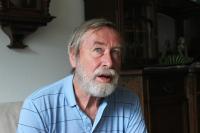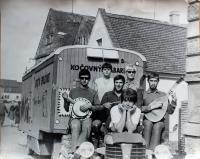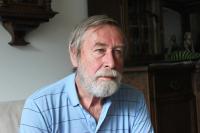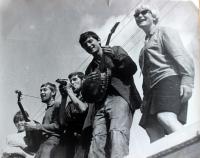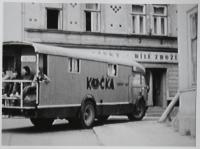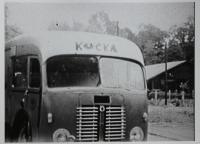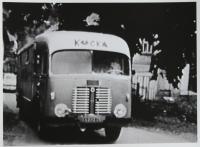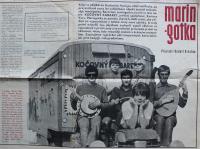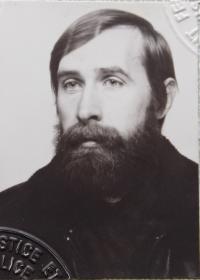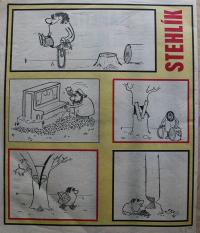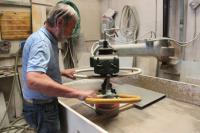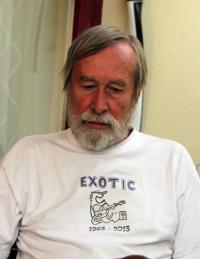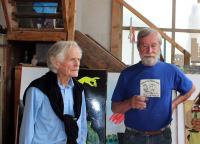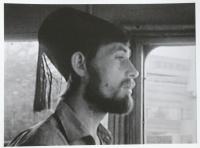I can work in the field I loved and continue to love

Download image
The stonemason and stone sculptor Josef (Joža) Stehlík was born in 1944 into the family of a stonemason in Zlín. He grew up in Černá Voda, Skuteč, and Karlovy Vary. He studied at the Secondary Technical School of Stone Carving in Hořice. He did amateur and semi-professional theatre, in 1966-1968 he spent the summer holidays with the travelling cabaret show Kočka (Cat). He tried his hand at many jobs: entertainer, lorry driver, bookseller. He published caricatures in the magazine Mladý svět (Young World) in the 1970s. In 1978 he decided not to return from a trip abroad, he immigrated to his sister in Switzerland via Germany. He settled down in Basel and started working as a stonemason. He has worked freelance since 1984, founding Atelier für Stein - Stehlik. He also helps organise the cultural scene of the expatriate community in Basel.
